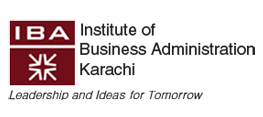Sustainability assessment of Malaysian Islamic Banking industry and its impact on achievement of Maqāsid-Al-Shari’ah
Submission Type
Paper Presentation
Abstract/Description
Islamic economy is based upon Islamic principles and views social justice as a vital objective. The pursuit of social goals and sustainable development is deeply rooted in Islamic theology. The study has aimed at exploring the nexus between sustainability and Maqāsid-al-Shari’ah. The concept of sustainability and Maqāsid-al-Shari’ah have a lot in common based upon their premise and salient features. Islamic finance is a manifestation of the Islamic economy. Since goals of Islamic economy and sustainable development have quite in common to work upon, Islamic banking as a subset of Islamic finance can work towards these goals. Islamic finance can help to mobilize resources for SDGs. Islamic banking as a mechanism does not only have to offer Shari'ah-compliant products but must contribute to a better notion of Shari’ah. It is required by Islamic Banks to achieve socio-economic justice as required by Maqāsid-al-Shari’ah. Keeping in view the socio-economic objectives of Islamic Finance and Banking, the study has investigated the performance of the Malaysian Islamic Banking Industry in the achievement of Maqasid-al-Shari’ah. It is found that adopting sustainability practices in presence of financial performance can help towards Maqāsid-al-Shari’ah achievement by Islamic banks.
Keywords
Session Chair
Dr. Mohamed Eskandar Shah Mohd. Rasid, Associate Professor, Hamad Bin Khalifa University (HBKU)
Session Host
Dr. Rizwan Malik, Head, Standards Implementation & Strategic Developments AAOIFI, Bahrain
Start Date
31-5-2022 3:15 PM
End Date
31-5-2022 3:30 PM
Recommended Citation
Shamoon, Q., & Ali, A. (2022). Sustainability assessment of Malaysian Islamic Banking industry and its impact on achievement of Maqāsid-Al-Shari’ah. IBA CEIF World Islamic Finance Forum (WIFF). Retrieved from https://ir.iba.edu.pk/wiff/2022/agenda/13
COinS
Sustainability assessment of Malaysian Islamic Banking industry and its impact on achievement of Maqāsid-Al-Shari’ah
Islamic economy is based upon Islamic principles and views social justice as a vital objective. The pursuit of social goals and sustainable development is deeply rooted in Islamic theology. The study has aimed at exploring the nexus between sustainability and Maqāsid-al-Shari’ah. The concept of sustainability and Maqāsid-al-Shari’ah have a lot in common based upon their premise and salient features. Islamic finance is a manifestation of the Islamic economy. Since goals of Islamic economy and sustainable development have quite in common to work upon, Islamic banking as a subset of Islamic finance can work towards these goals. Islamic finance can help to mobilize resources for SDGs. Islamic banking as a mechanism does not only have to offer Shari'ah-compliant products but must contribute to a better notion of Shari’ah. It is required by Islamic Banks to achieve socio-economic justice as required by Maqāsid-al-Shari’ah. Keeping in view the socio-economic objectives of Islamic Finance and Banking, the study has investigated the performance of the Malaysian Islamic Banking Industry in the achievement of Maqasid-al-Shari’ah. It is found that adopting sustainability practices in presence of financial performance can help towards Maqāsid-al-Shari’ah achievement by Islamic banks.




Note